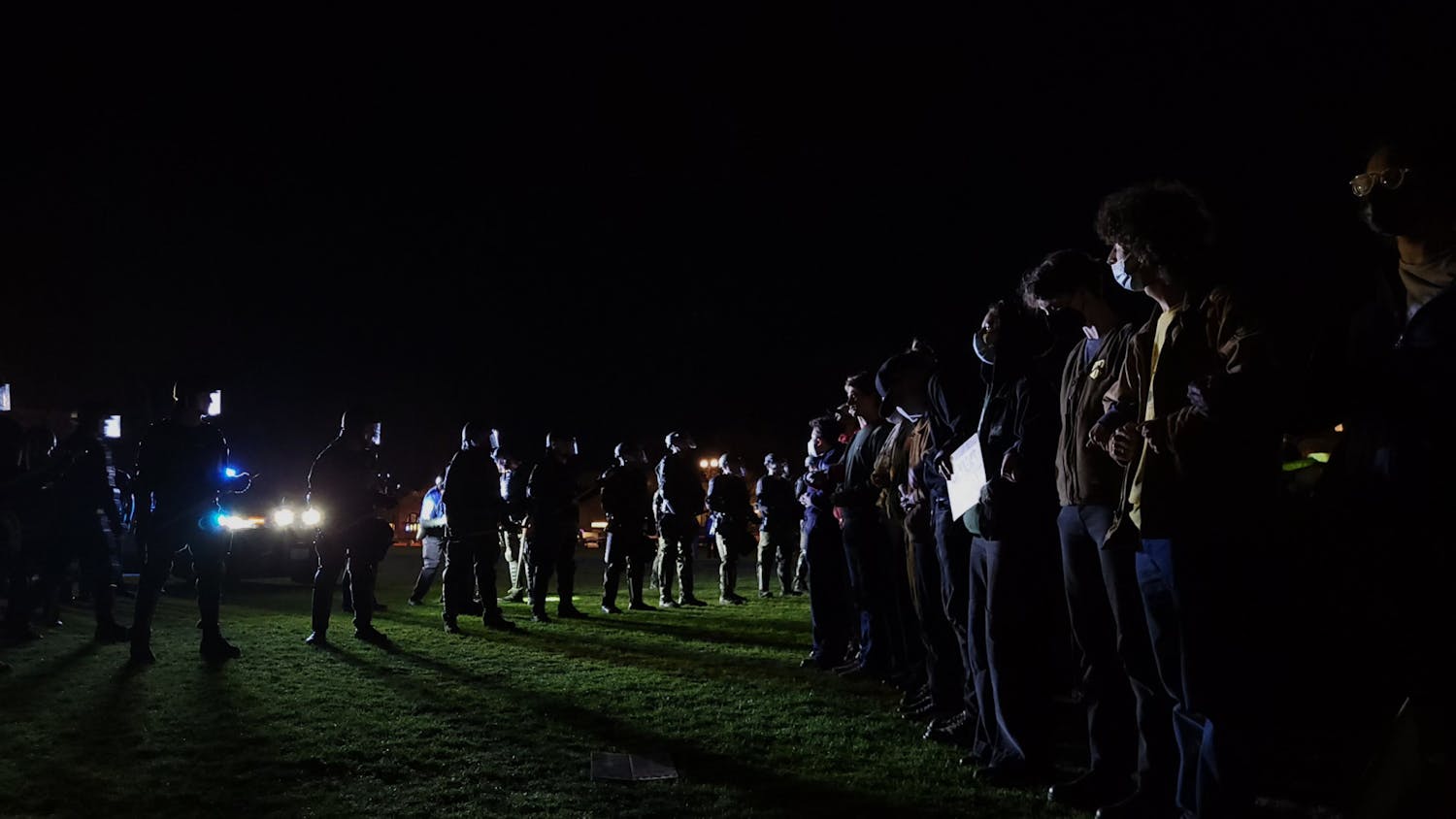In the ongoing push for a more diverse curriculum, we've seen more than a few groups seeking their own course or department. Almost every group imaginable has spoken out, and while some have been granted their wish, others have not, and the debate continues.
Well, now it's my turn. We need a Fraternity/Sorority Studies course. Listed in the ORC as College Course 12, "Introduction to Fraternity/Sorority Studies," the description would go like this:
This course seeks to expose students to the lifestyle of the average College fraternity or sorority member. Topics may include hazing, community service and beer label memorization. The course may include a field trip to a weekend party at a Greek house, and students would be expected to develop an advanced understanding of the concept of "boot-and-rally."
On a campus where more than half of all upperclasspersons are members of Greek organizations, Fraternity/Sorority Studies is a must. The course would foster discussion about the future and importance of Greek houses, and would allow students and professors to explore an area of study that has been virtually ignored by the other disciplines.
Think of the countless contributions and achievements of people who are affiliated with a fraternal or sororal organization. President William McKinley was a brother in Sigma Alpha Epsilon. Candice Bergen was a sister in Kappa Kappa Gamma. Harrison Ford was a Sigma Nu. Joan Lunden was a Delta Gamma sister. Dr. Seuss was a Sigma Phi Epsilon brother right here at Dartmouth.
A Fraternity/Sorority Studies course would allow students to explore the impact that present and former fraternity and sorority members have had on our society. Millions of people have experienced life as a fraternity brother or sorority sister. It would simply be a travesty to neglect such a hugely important segment of America.
If Dartmouth College wishes to remain a proactive force in promoting understanding of issues of diversity, it must bring fraternity and sorority issues to the forefront of discussion. Anything less would undermine Dartmouth as a civilized institution.
If Fraternity/Sorority Studies does proliferate here at Dartmouth, it may one day achieve departmental status, allowing the exploration of a wide range of fraternity and sorority issues. Further, those interested could pursue a Fraternity/Sorority Studies major, and maybe even attend graduate school, en route to a Master's Degree or Ph.D. in Fraternity/Sorority Studies.
I have faith that Dartmouth will lead the way and institute College Course 12, Introduction to Fraternity/Sorority Studies. The day that students enroll in the course will be a great day indeed.


